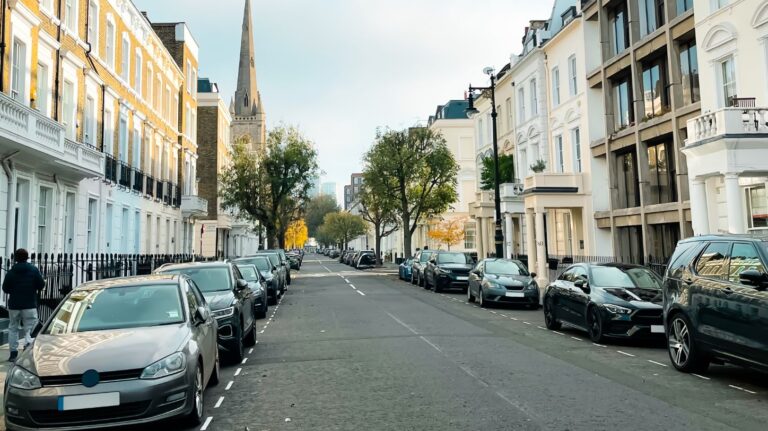UK climate charity Possible has called on all London boroughs to commit to reallocating 25% of the kerbside for more sustainable uses.
The recommendation follows Possible’s development and use of a new online tool that assessed London councils’ parking policies and the extent to which they use their power to tackle climate change and reduce reliance on cars.
The Parking Action Plan assessment tool was developed in partnership with CPRE London and based on its Parking Policy Benchmark research, with support from Living Streets.
Having completed its assessments in February 2024, Possible has now published the findings of its research alongside an interactive map to distinguish between boroughs.
The Parking Action Policy map has been designed to complement the Healthy Streets Scorecard, an annual assessment of London Boroughs’ progress on traffic reduction measures produced by a coalition of organisations.
Possible’s research evaluated the parking policy of every borough in London by grouping areas of policy into key categories such as the cost of parking, controlled parking zones in place, availability of electric vehicle (EV) charging, accessibility, and identifying key pieces of policy evidenced in each category.
The more policies a council had in place, the higher it scored in each category, with a council’s overall score based on an average of its scores across all categories.
According to Possible, the research found a wide variation across London boroughs, concluding that all councils in the UK capital needed to do more to implement and utilise parking policies effectively.
The boroughs of Camden, Hackney, Haringey, Islington and Lambeth were rated among the highest of all London boroughs, measured to have significantly better parking policies than others and receiving scores of higher than 50 out of 100.
Indexed to Possible’s research criteria, at least 10 boroughs, including Bexley, Havering, Hillingdon, and Redbridge measured some of the poorest parking policies, receiving scores of under 20.
Possible reported that, while streets make up 80% of cities’ public space, cars taking up parking spots and driving through residential areas means that public space is limited for people.
What’s more, the climate charity went on to claim that, in areas where the majority of people do not drive – 70% of London’s poorest households reportedly do not own a car – allocating a large amount of public space to a small minority of people who drive is inequitable.
Possible has thus called upon all London borough to commit to reallocating at least 25% of kerbside space for more sustainable uses, such as parklets, rain gardens, cycle storage/parking and sustainable transport hire.
Parklets campaign manager at Possible, Carolyn Axtell, said: “Parking policy is one of the most effective tools a council can use to combat the climate crisis.
“It is not cost-prohibitive, and can encourage people in all London boroughs to reduce their car use – which is necessary for both the capital and the UK to meet their climate targets.
“As the Parking Action Policy map shows, most London councils are failing to make full use of parking policy to deliver safe and accessible streets, and to ensure that there is equity in the distribution of public space.
“While some London boroughs are leading the way in on using parking policy to create climate friendly and more equitable streets, we still have a lot of work to do.”
Possible has also recommended that London councils take action by introducing more controlled parking zones in their boroughs, including on housing estates, which can be susceptible to commuter parking, turning them into free-for-all car parks and limiting public space for people.
Achievements and innovations in transport education and advocacy and will be celebrated at the third annual CiTTi Awards, which will be held on 26 November 2024 at De Vere Grand Connaught Rooms in London. Nominations are open now! Please visit www.cittiawards.co.uk to learn more about this unmissable event for the UK’s transportation sector





